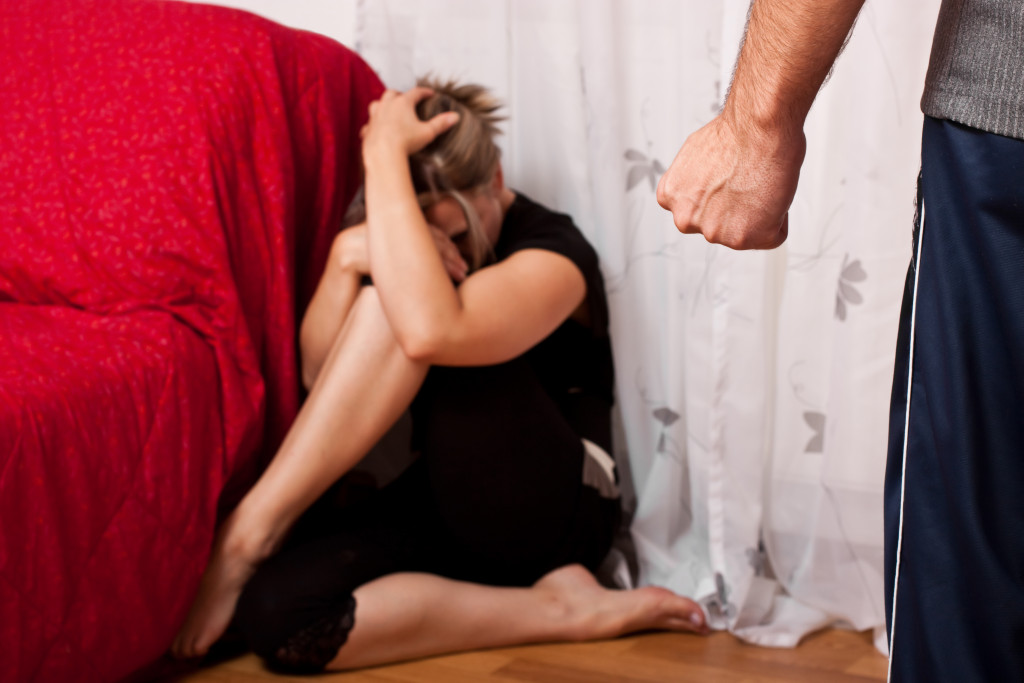• In the U.S., 1 in 4 women and 1 in 7 men have experienced physical violence by an intimate partner.
• Signs of abuse in marriage can include fearful behavior, feeling isolated from family and friends, controlling behavior, and abusive language.
• Victims have the right to seek legal protection from threats of violence and receive medical attention in a safe environment.
• Getting out of an abusive marriage requires seeking family support, professional help, understanding your legal rights and keeping yourself safe.
Abuse in marriage can take many forms. In the United States, 1 in 4 women and 1 in 7 men have experienced physical violence by an intimate partner. Emotional abuse—such as verbal threats, humiliation, or control—is even more common. Whether you’re dealing with emotional, physical, or financial abuse, getting out of an abusive marriage is often difficult and requires careful planning and support. It’s important to remember that you are not alone—help is available.
Signs of Abuse
Abuse isn’t just physical. It can be emotional, psychological, and financial. Recognizing the signs of abuse is a crucial first step in taking back control of your life. Here are some common signs to watch for:
- Fearful behavior: feeling scared or intimidated by your spouse
- Feeling isolated from family and friends
- Controlling behavior: being told what to do or who to talk to
- Blaming you for everything that goes wrong
- Abusive language, emotional outbursts, or name-calling
What You Can Do
If you are in an abusive marriage, it’s time to take action. An abusive marriage can cause you both physical and emotional harm. You should not let another day go by without seeking help. Here are some steps to take:
Know Your Rights
The first step in getting out of an abusive relationship is understanding your rights as a victim of domestic violence. According to the U.S. Department of Justice, victims have the right to:
- Seek legal protection from abuse or threats of violence
- Be free from harassment, including stalking and cyberstalking
- Receive medical attention in a safe environment
- Get help with housing if you are homeless or need temporary shelter
- Have your name kept confidential
If you have been threatened with violence or harmed by your partner, it is important to document any incidents and contact the police if necessary. Knowing your rights can help you make informed decisions about acting against your abuser.

Seek Support from Family and Friends
Leaving an abusive relationship can be difficult. Although you have been abused for a long time, you may still find it hard to take that first step toward freedom due to fear, guilt, and other strong emotions. That’s why it’s important to have your family and friends’ support as you transition.
Reach out to trusted loved ones who can provide emotional and practical support during this challenging time. A strong network of family and friends can provide much-needed encouragement and assistance when deciding to leave your abuser.
Find Professional Help
Finding professional help when navigating the process of leaving an abusive marriage is also important. Seek out counseling services, specialized legal advice, or support groups that can provide guidance and resources for victims of domestic abuse. Here are ways they can help you:
- Provide emotional support to help you cope with the trauma of leaving your abuser.
- Help you create safety plans and offer practical advice on protecting yourself while transitioning out of the abusive relationship.
- Connect you with housing and financial assistance programs that provide resources for abuse victims.
- Help you understand your legal rights, including filing restraining orders and obtaining child custody.
Finding Legal Help
If you have been a victim of domestic abuse, it is important to seek legal help. If divorce is the only way out of an abusive marriage, an experienced divorce lawyer can provide legal guidance on navigating the process. They can also help protect your rights by ensuring you receive appropriate child support or spousal maintenance payments if necessary.
Your lawyer can also help you understand your legal rights and responsibilities, including filing restraining orders and protecting yourself from further violence. Additionally, they can advise on obtaining orders to protect your finances and property in case of a divorce.

Keep Yourself Safe
Above all else, keeping yourself safe is important when getting out of an abusive marriage. It is not uncommon for abusers to become violent or attempt to manipulate or intimidate their victims during or after the separation. To ensure your safety, here are some tips to keep in mind:
- Create a safety plan and stick to it.
- Inform trusted family and friends of your situation and ask them for support.
- Contact local domestic violence helplines or hotlines if needed.
- Report any threats or violations of protective orders to the police.
- Gather important documents such as bank statements, tax returns, and medical records in a safe place.
Remember, you are not alone, and there is help available. Abuse in any form is unacceptable, and it’s important to take action if you or someone you know is in an abusive marriage. With the right support, you can regain control of your life and move forward safely and confidently.

